-
On this page, you can see all of the books that your child may be assigned to read in the 8th Grade ELA Course. The descriptions are from Amazon. Each book was carefully selected and vetted by WCSD GT Magnet English teachers and administrators. Each selection is purposefully chosen to meet a variety of factors within the magnet: Universal and Essential Questions, Depth and Complexity, inter-disciplinary, appropriateness for magnet students, and interest to magnet students. Please understand that sometimes in order to provide advanced readers with challenging texts, we have selected books that are intended for a mature/older audience. However, it is our professional opinion that these books are appropriate for our gifted students. As always, please contact me with any questions and/or concerns you might have regarding any of these novel selections.
I encourage parents to read these books along with your child...family book clubs are the best. It will allow you the opportunity to read some good books, help guide your child through the text, and provide opportunities for you to discuss the conflicts and ethical dilemmas that emerge from each book.
Here is a wonderful video of Richard Peck--author of The River Between Us that students read during the 1st quarter--eloquently talking about families that read together. Richard Peck on Reading and Writing.
Depth and Complexity Icons Explained!
8th Grade Magnet Class Novels
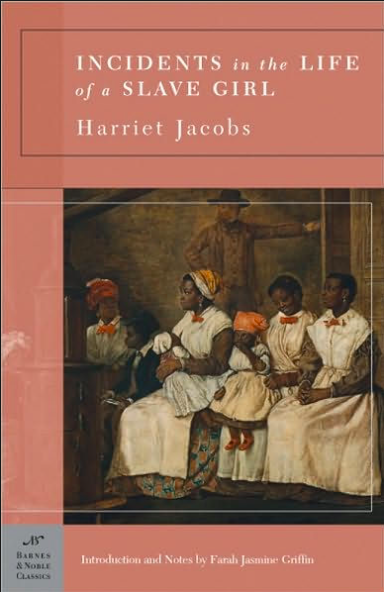
-
The true story of an individual's struggle for self-identity, self-preservation, and freedom, Incidents in the Life of a Slave Girl remains among the few extant slave narratives written by a woman. This autobiographical account chronicles the remarkable odyssey of Harriet Jacobs (1813–1897) whose dauntless spirit and faith carried her from a life of servitude and degradation in North Carolina to liberty and reunion with her children in the North.
Written and published in 1861 after Jacobs' harrowing escape from a vile and predatory master, the memoir delivers a powerful and unflinching portrayal of the abuses and hypocrisy of the master-slave relationship. Jacobs writes frankly of the horrors she suffered as a slave, her eventual escape after several unsuccessful attempts, and her seven years in self-imposed exile, hiding in a coffin-like "garret" attached to her grandmother's porch.
A rare firsthand account of a courageous woman's determination and endurance, this inspirational story also represents a valuable historical record of the continuing battle for freedom and the preservation of family.
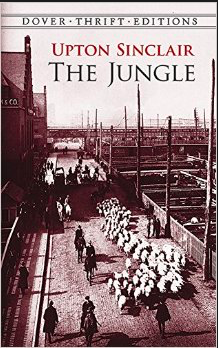
-
An ardent activist, champion of political reform, novelist, and progressive journalist, Upton Sinclair is perhaps best known today for The Jungle — his devastating exposé of the meat-packing industry. A protest novel he privately published in 1906, the book was a shocking revelation of intolerable labor practices and unsanitary working conditions in the Chicago stockyards. It quickly became a bestseller, arousing public sentiment and resulting in such federal legislation as the Pure Food and Drug Act. The brutally grim story of a Slavic family who emigrates to America, The Jungle tells of their rapid and inexorable descent into numbing poverty, moral degradation, and social and economic despair. Vulnerable and isolated, the family of Jurgis Rudkus struggles — unsuccessfully — to survive in an urban jungle.
A powerful view of turn-of-the-century poverty, graft, and corruption, this fiercely realistic American classic is still required reading in many history and literature classes. It will continue to haunt readers long after they've finished the last page.
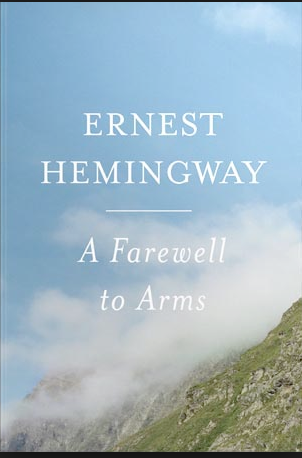
-
Written when Ernest Hemingway was thirty years old and lauded as the best American novel to emerge from World War I, A Farewell to Arms is the unforgettable story of an American ambulance driver on the Italian front and his passion for a beautiful English nurse. Set against the looming horrors of the battlefield—weary, demoralized men marching in the rain during the German attack on Caporetto; the profound struggle between loyalty and desertion—this gripping, semiautobiographical work captures the harsh realities of war and the pain of lovers caught in its inexorable sweep. Ernest Hemingway famously said that he rewrote the ending to A Farewell to Arms thirty-nine times to get the words right.
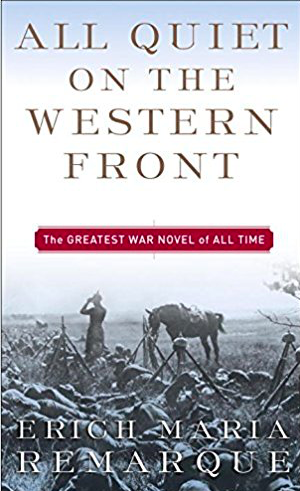
-
Considered by many the greatest war novel of all time, All Quiet on the Western Front is Erich Maria Remarque’s masterpiece of the German experience during World War I.
I am young, I am twenty years old; yet I know nothing of life but despair, death, fear, and fatuous superficiality cast over an abyss of sorrow. . . .
This is the testament of Paul Bäumer, who enlists with his classmates in the German army during World War I. They become soldiers with youthful enthusiasm. But the world of duty, culture, and progress they had been taught breaks in pieces under the first bombardment in the trenches.
Through years of vivid horror, Paul holds fast to a single vow: to fight against the principle of hate that meaninglessly pits young men of the same generation but different uniforms against one another . . . if only he can come out of the war alive.
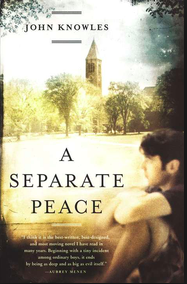
-
An American classic and great bestseller for over thirty years, A Separate Peace is timeless in its description of adolescence during a period when the entire country was losing its innocence to World War II.
Set at a boys' boarding school in New England during the early years of World War II, A Separate Peace is a harrowing and luminous parable of the dark side of adolescence. Gene is a lonely, introverted intellectual. Phineas is a handsome, taunting, daredevil athlete. What happens between the two friends one summer, like the war itself, banishes the innocence of these boys and their world.
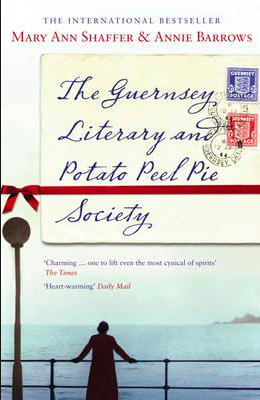
-
The Guernsey Literary and Potato Peel Pie Society is a historical novel by Mary Ann Shaffer and Annie Barrows that was published in 2008. The book is set in 1946 and is an epistolary novel, composed of letters written from one character to another.
“I wonder how the book got to Guernsey? Perhaps there is some sort of secret homing instinct in books that brings them to their perfect readers.” January 1946: London is emerging from the shadow of the Second World War, and writer Juliet Ashton is looking for her next book subject. Who could imagine that she would find it in a letter from a man she’s never met, a native of the island of Guernsey, who has come across her name written inside a book by Charles Lamb.
As Juliet and her new correspondent exchange letters, Juliet is drawn into the world of this man and his friends—and what a wonderfully eccentric world it is. The Guernsey Literary and Potato Peel Pie Society—born as a spur-of-the-moment alibi when its members were discovered breaking curfew by the Germans occupying their island—boasts a charming, funny, deeply human cast of characters, from pig farmers to phrenologists, literature lovers all.
Juliet begins a remarkable correspondence with the society’s members, learning about their island, their taste in books, and the impact the recent German occupation has had on their lives. Captivated by their stories, she sets sail for Guernsey, and what she finds will change her forever.
Written with warmth and humor as a series of letters, this novel is a celebration of the written word in all its guises and of finding connection in the most surprising ways.
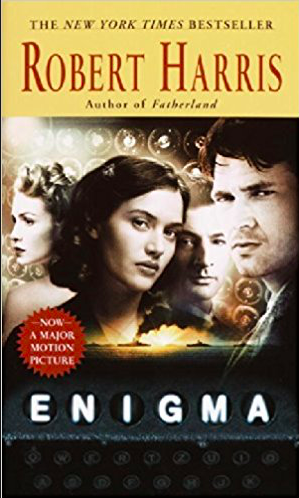
-
England 1943. Much of the infamous Nazi Enigma code has been cracked. But Shark, the impenetrable operational cipher used by Nazi U-boats, has masked the Germans' movements, allowing them to destroy a record number of Allied vessels. Feeling that the blood of Allied sailors is on their hands, a top-secret team of British cryptographers works feverishly around the clock to break Shark. And when brilliant mathematician Tom Jericho succeeds, it is the stuff of legend.
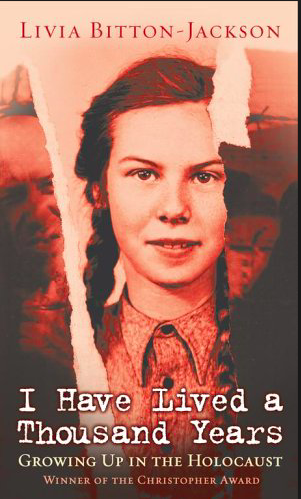
-
What is death all about? What is life all about?
So wonders thirteen-year-old Elli Friedmann as she fights for her life in a Nazi concentration camp. A remarkable memoir, I Have Lived a Thousand Years is a story of cruelty and suffering, but at the same time a story of hope, faith, perseverance, and love.
It wasn’t long ago that Elli led a normal life that included family, friends, school, and thoughts about boys. A life in which Elli could lie and daydream for hours that she was a beautiful and elegant celebrated poet.
But these adolescent daydreams quickly darken in March 1944, when the Nazis invade Hungary. First Elli can no longer attend school, have possessions, or talk to her neighbors. Then she and her family are forced to leave their house behind to move into a crowded ghetto, where privacy becomes a luxury of the past and food becomes a scarcity. Her strong will and faith allow Elli to manage and adjust, but what she doesn’t know is that this is only the beginning. The worst is yet to come...
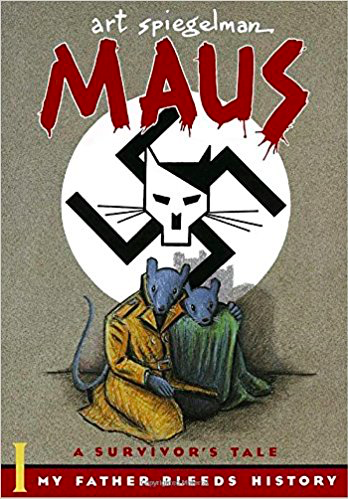
-
The first installment of the Pulitzer Prize-winning graphic novel acclaimed as “the most affecting and successful narrative ever done about the Holocaust” (Wall Street Journal) and “the first masterpiece in comic book history” (The New Yorker).
A brutally moving work of art—widely hailed as the greatest graphic novel ever written—Maus recounts the chilling experiences of the author’s father during the Holocaust, with Jews drawn as wide-eyed mice and Nazis as menacing cats.
Maus is a haunting tale within a tale, weaving the author’s account of his tortured relationship with his aging father into an astonishing retelling of one of history's most unspeakable tragedies. It is an unforgettable story of survival and a disarming look at the legacy of trauma.
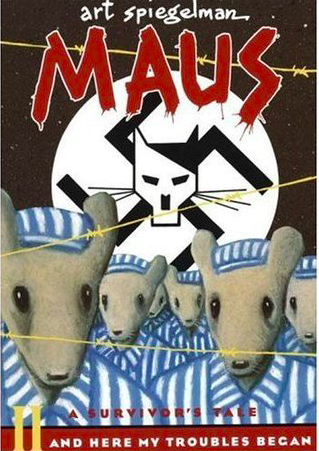
-
The second installment of the Pulitzer Prize-winning graphic novel acclaimed as “the most affecting and successful narrative ever done about the Holocaust” (Wall Street Journal) and “the first masterpiece in comic book history” (The New Yorker).
A brutally moving work of art—widely hailed as the greatest graphic novel ever written—Maus recounts the chilling experiences of the author’s father during the Holocaust, with Jews drawn as wide-eyed mice and Nazis as menacing cats.
Maus is a haunting tale within a tale, weaving the author’s account of his tortured relationship with his aging father into an astonishing retelling of one of history's most unspeakable tragedies. It is an unforgettable story of survival and a disarming look at the legacy of trauma.
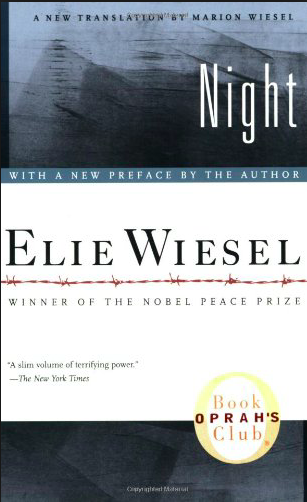
-
Night (1960) is a work by Elie Wiesel about his experience with his father in the Nazi German concentration camps at Auschwitz and Buchenwald in 1944-45, at the height of the Holocaust toward the end of the Second World War. In just over 100 pages of sparse and fragmented narrative, Wiesel writes about the death of God and his own increasing disgust with humanity, reflected in the inversion of the parent-child relationship as his father declines to a helpless state and Wiesel becomes his resentful teenage caregiver. "If only I could get rid of this dead weight ... Immediately I felt ashamed of myself, ashamed forever." In Night everything is inverted, every value destroyed. "Here there are no fathers, no brothers, no friends," a Kapo tells him. "Everyone lives and dies for himself alone.
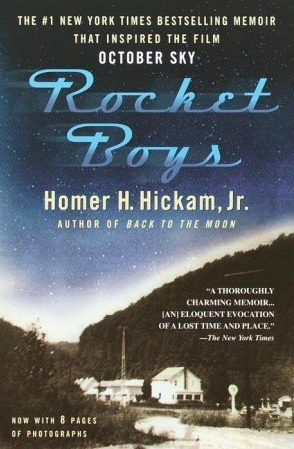
-
The #1 New York Times bestselling memoir that inspired the film October Sky, Rocket Boys is a uniquely American memoir--a powerful, luminous story of coming of age at the dawn of the 1960s, of a mother's love and a father's fears, of a group of young men who dreamed of launching rockets into outer space . . . and who made those dreams come true.
With the grace of a natural storyteller, NASA engineer Homer Hickam paints a warm, vivid portrait of the harsh West Virginia mining town of his youth, evoking a time of innocence and promise, when anything was possible, even in a company town that swallowed its men alive. A story of romance and loss, of growing up and getting out, Homer Hickam's lush, lyrical memoir is a chronicle of triumph--at once exquisitely written and marvelously entertaining.
One of the most beloved bestsellers in recent years, Rocket Boys is a uniquely American memoir. A powerful, luminous story of coming of age at the end of the 1950s, it is the story of a mother's love and a father's fears, of growing up and getting out. With the grace of a natural storyteller, Homer Hickam looks back after a distinguished NASA career to tell his own true story of growing up in a dying coal town and of how, against the odds, he made his dreams of launching rockets into outer space come true.
A story of romance and loss and a keen portrait of life at an extraordinary point in American history, Rocket Boys is a chronicle of triumph.

